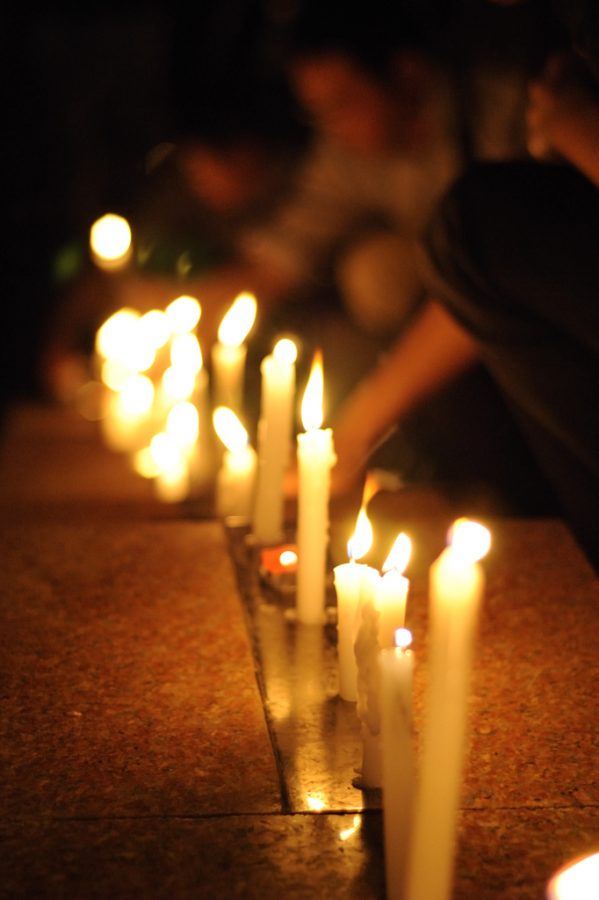Photo courtesy of Patrick He/Flickr
National Suicide Prevention month occurs in September, but Loyola’s Counseling Center strategically chooses to raise awareness from October until November 20 in an effort to keep vital conversation going around this important topic. Throughout the next month, the Counseling Center will attempt to increase discussion around this topic and educate students and faculty alike. The center runs this programming starting in October in hopes that as students settle into the semester they are more open to receiving messages, and because as mid-terms approach and academics intensify, risk goes up regarding suicide and other detrimental behaviors.
The Counseling Center’s prevention program is focused around public health efforts, which staff psychologist Aaron Barnes described as “a community based intervention” that addresses an issue on a broader and more approachable level for the general student population. The program began about six years ago, and the specific suicide prevention programming runs every other year so a Loyola student will see it twice within their time at the university.
Suicide can sometimes be seen as a sensitive topic that the general population tends to ignore or feel uncomfortable addressing. So why is it important that we discuss it? To begin, suicide and suicidal thoughts affect everyone at some point in their life, but especially college-aged students. Suicide is the third leading cause of death among adolescents, and the second amongst college students, which would equate to about three college students committing suicide every day. While women are more likely to attempt suicide, men are four to five times more likely to actually complete suicide. Approximately 1,100 college students commit suicide every year, which proves that this is not an isolated issue.
At a Loyola level, the statistics are still staggering: about 11% of Loyola students have seriously considered suicide, which translates to about 600 undergraduate and graduate students in total. The LGBTQ community is one of the student populations at greatest risk of suicide, and the Counseling Center supports this group by simply getting involved and showing support with clubs like Spectrum and running the In, Out and In-between support group for students.
With so many college students at risk, it is important that people are aware of the signs and behaviors associated with suicide so they can check in with someone who may be distressed. Warning signs tend to be divided into two categories, first tier signs tend to be the more obvious and overt expressions of suicidal thoughts, and second tier signs are subtler but equally as dangerous.
First tier warning signs include someone who threatens to hurt or kill themselves, someone looking for ways to kill themselves such as seeking access to pills or weapons, and someone talking or writing excessively about death or dying. Second tier warning signs encompass behavior such as change in substance use, purposelessness (“I don’t want to wake up anymore”), anxiety, agitation, inability to sleep, feeling trapped or hopeless (“things wont get better”), withdrawal from family and friends, increasing risk-taking behaviors, anger, revenge-seeking and rage. While it may be easy to see these changes in other people, it is also important that students be self-aware and monitor for any changes in themselves. If someone ever feels themselves self-isolating and changing moods drastically, it may be a sign that they should look into help for themselves.
There are many resources that students can turn to if they have concerns about this topic. Obviously, the Counseling Center is a place for students where they work with the center to decide in a collaborative way what is the best approach for their health and wellness moving forward. Students can also use the national suicide prevention hotline, 1-800-273-TALK, and if in immediate danger can call campus police who are trained to handle such situations.
While it is a challenge to erase the stigma associated with suicide and suicide prevention, the Counseling Center is trying to do so by normalizing the discussion and educating faculty and other administrators on campus on how to support and connect with students. The more we talk about the issue, the less taboo the topic becomes and the more informed Loyola becomes as a campus community. Aaron summed up the importance of exploring this issue simply, “Most people have at least one depressed episode in their lifetime, and that’s to be human. Just because we all have it doesn’t mean we can’t talk about it.”
If you are interested in further information, please visit the Counseling Center’s website; http://www.loyola.edu/department/counselingcenter/students/concerns/suicide















































































































